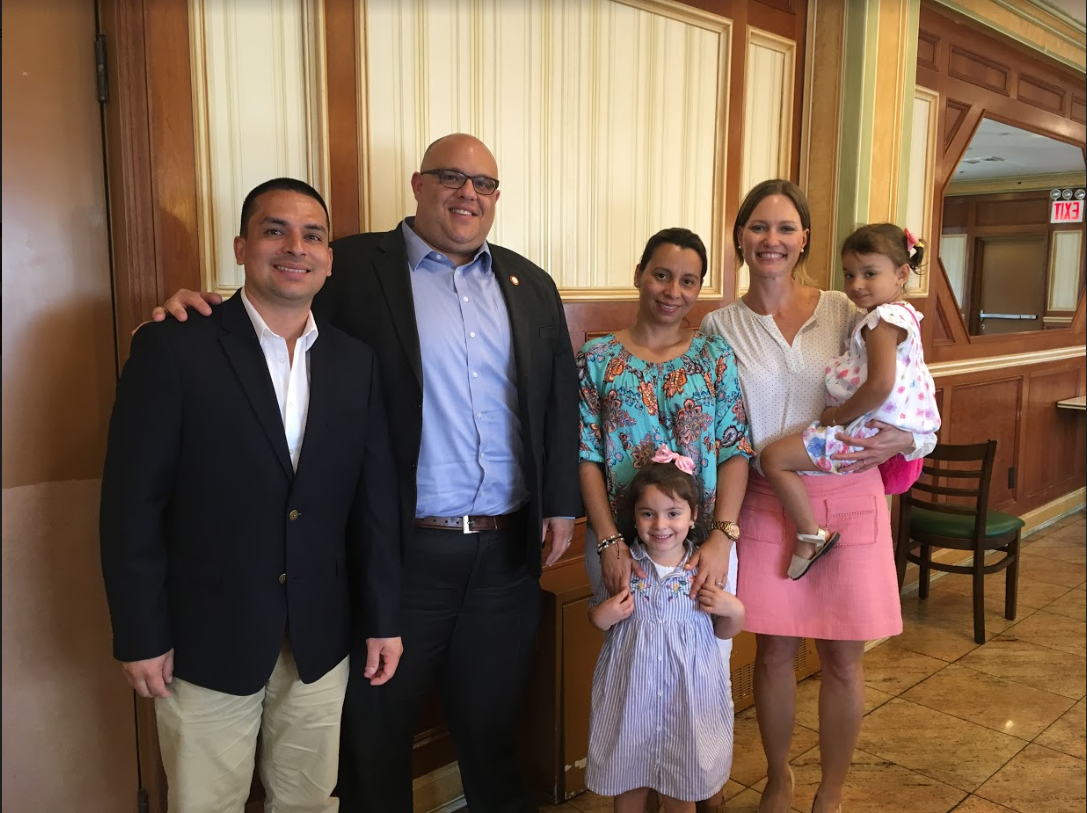Deliveryman detained at Fort Hamilton returns to Bay Ridge

On Friday, August 10, Pablo Villavicencio returned to Bay Ridge.
It was the first time the pizza deliveryman, who is undocumented, had been in the neighborhood since Friday, June 1, the day he attempted to bring an order to Fort Hamilton and found himself arrested and put into Immigration and Customs Enforcement (ICE) custody, leading to a 53-day confinement in a New Jersey jail before he was finally freed on judge’s orders as he attempts to legalize his status.
Villavicencio visited the neighborhood with wife Sandra Chica, and their two daughters, Luciana, 4, and Antonia, 2, to thank Councilmember Justin Brannan, who was one of the first people to work to publicize his case. They all had lunch in the private room at the back of the Bridgeview Diner, Third Avenue and 92nd Street, and this writer was one of two journalists privileged to attend.